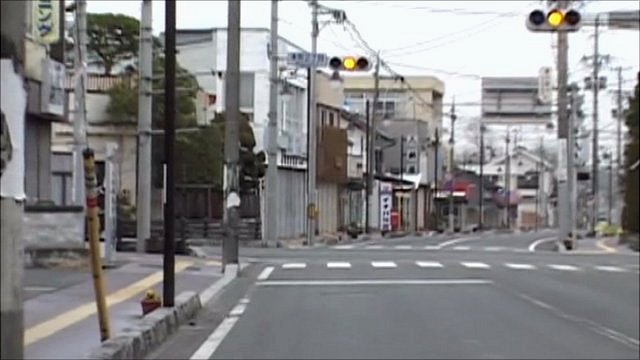 Tokyo's tap water is unfit for babies to drink after radiation from Japan's quake-hit nuclear plant affected the capital's water supply, officials said.
Tokyo's tap water is unfit for babies to drink after radiation from Japan's quake-hit nuclear plant affected the capital's water supply, officials said.
Radioactive iodine levels in some areas were twice the recommended safe level.
People in Fukushima prefecture, where the nuclear plant is located, have been told not to eat certain vegetables because of contamination worries.
Workers have been temporarily evacuated from the plant after black smoke was seen rising from reactor No 3.
Engineers have been trying to cool the reactors and spent fuel ponds to avoid a major release of radiation, after power to the cooling systems was knocked out by the earthquake and tsunami.
The authorities are warning people living in Tokyo not to allow babies less than a year old to drink water from the tap.
The level of radiation picked up in tests carried out on Tuesday was more than twice the level that is safe for infants to drink.
But officials have stressed that children would have to drink a lot of it before it harmed them. There is no immediate health risk to others.
The government has also ordered people living in Fukushima not to eat 11 types of green leafy vegetable grown locally that have been contaminated by radiation.
Local producers have been ordered not to send the goods to market, and in the neighbouring prefecture of Ibaraki they have been told to halt shipments of milk and parsley with immediate effect.
The Japanese Cabinet Secretary Yukio Edano said: "Even if these foods are temporarily eaten, there is no health hazard.
"But unfortunately, as the situation is expected to last for the long term, we are asking that shipments stop at an early stage, and it is desirable to avoid intake of the foods as much as possible."
He told a news conference that importers of Japanese foods should take a "logical stance".
The Food and Drug Administration in the US said that all milk and milk products and fresh fruits and vegetables from four Japanese prefectures - Fukushima, Ibaraki, Tochigi and Gunma - would be stopped from entering the United States.
Countries including China, Taiwan and South Korea have already been carrying out rigorous checks of Japanese food imports.
Setbacks
The confirmed death toll from the earthquake and tsunami has risen to 9,408, and more than 14,700 people are listed as missing.
An estimated half a million people have been made homeless and some 300,000 people remain in evacuation centres or temporary housing.
Japan has said it will cost as much as 25 trillion yen ($309bn; £189bn) to rebuild the country after the disaster.
Meanwhile, work has been halted at the Fukushima Daiichi plant after black smoke was seen rising from reactor 3.
Radiation levels were reported to be unusually high before the smoke was spotted; they later fell but remain higher than in recent days.
Engineers were earlier forced to halt testing of the electrical system at reactor 2 after radiation levels spiked. There is also concern about the rising temperature at reactor 1.
Power cables have been connected to all six reactors, and lighting has been restored at reactor 3.
The plant's operator, Tokyo Electric Power (Tepco), had hoped to try to power up water pumps to reactor 3 on Wednesday but it is unclear whether that will now happen.
Tepco has said restoring power to all the reactor units could take weeks or even months. Engineers' efforts have been frequently hampered by smoke and spikes in radiation.
On Tuesday, an International Atomic Energy Agency (IAEA) senior official, James Lyons, said he could not confirm that the damaged reactors were "totally intact" or if they were cracked and leaking radiation.
"We continue to see radiation coming from the site... and the question is where exactly is that coming from," Mr Lyons told a news conference.



